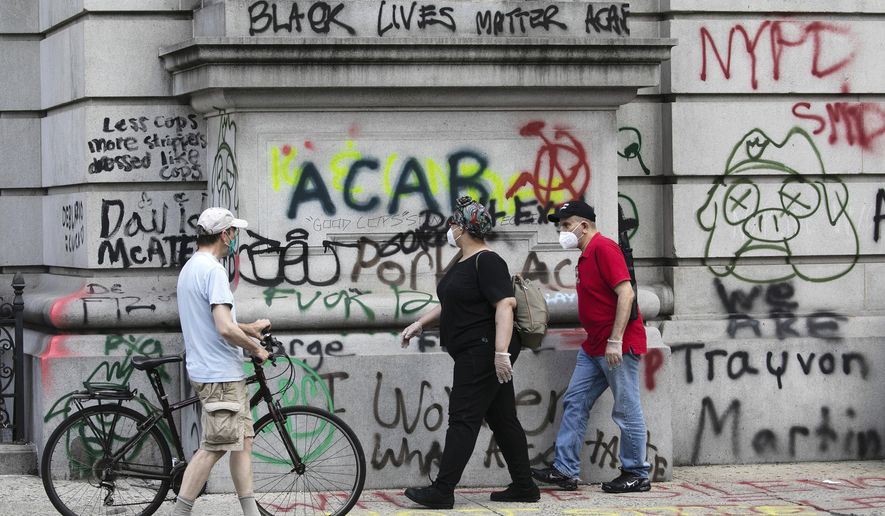OPINION:
My older brother spent 30 years as a police officer in a small Wisconsin town where we’d grown up and our parents owned and ran a tavern. One Friday evening as we were sitting at a table near the bar enjoying the weekly fish fry a fellow walked up to the table, slugged my brother and knocked him off his chair.
My brother, who was off-duty at the time, got up, dusted himself off and sent the guy packing. When he came back to the table to finish his dinner, he said, “That’s the downside of being a cop here. After a while, everyone you run into has a family member or friend you’ve arrested and some of them aren’t very happy about it.”
When my brother retired from the police department, he took a job for a while as a filling-station attendant in the days when the attendant filled your tank, cleaned your windshield and asked if you needed anything else. He told me he enjoyed it because he could talk to people without them thinking he was about to arrest or ticket them.
Those were gentler times and a small Wisconsin town was and is still different from New York City, Chicago or Milwaukee, where even then people hostile to the police were as likely to shoot a cop instead of knocking him off his chair. Now they are as likely to burn down his precinct house, demand the force be disbanded and harass his family as to shout insults at officers they see as the enemy.
In the ‘60s, most were shocked by the sort of behavior my brother encountered that evening; today politicians, media figures and celebrities cheer on anyone who attacks the police. It’s no wonder police departments around the country are finding it almost impossible to recruit new officers while more experienced cops are retiring in droves.
It was reported last week that in New York City alone some 272 officers have put in for retirement in the last month and that most of them are among the most experienced in the department. The same thing is happening in other cities and towns across the country. Last month a small town police chief told me over dinner that his biggest problem was recruiting and keeping good officers in today’s environment and that was before the current drive to demonize law enforcement.
Most cops when my brother wore a badge were good men and women trying their best to do a tough job under sometimes trying circumstances, but even then there were a few as there are in every trade and profession who gave a bad name to law enforcement. In the days since, police departments on their own and under prodding from politicians, the courts and the public have done much to weed out those who should be doing something else for a living.
Police unions have fought these efforts at every step of the way and as recruitment has gotten tougher many departments have had to lower admission standards. After the riots in the ‘60s, the Washington, D.C., police department reportedly for a time even decided to overlook felony convictions among those they were recruiting and other departments did the same either formally or informally.
Progress in the decades since has been substantial and, while there is still room for substantive reform and a constant review of law enforcement’s relationship with those officers are sworn to protect, better training and reforms already in place have made most police forces today better than at any time in our history.
Amid today’s hostility to law enforcement, many seem to forget that the “thin blue line” between a civilized society and criminal anarchy is indeed thin. Most people are, like most police, good people who want only to live peaceably with their neighbors, earn a living and raise their families, but there are a few who but for men and women carrying a badge would prey on and brutalize those around them.
That line is fraying in cities like New York, where murder and violent crime is escalating and in smaller towns like Fredericksburg, Virginia, where a woman caught in a mini-riot with her small child in a car called 911 for help and was told she was on her own.
What those who would abolish the police forces that stand between them and anarchy don’t understand is that defunding the police and stripping them of both the respect they deserve and the support they need to do their job means fewer and fewer good men and women will be attracted to law enforcement and the world we share will become a far more dangerous place than it is today.
• David A. Keene is an editor at large for The Washington Times.




Please read our comment policy before commenting.